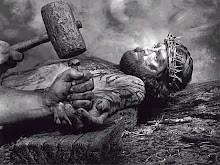Psalm 15 asks a very important question, “O LORD, who may abide in Your tent? Who may dwell on Your holy hill?” - Psalm 15:1
This question is twofold in
nature. First of all the word tent speaks of something temporary or transient.
In the New Testament in 2 Peter 1:13 Peter’s word for our bodies is actually
the word for tent. We are merely pilgrims on this earth. It is not God’s place
of permanent dwelling for us. So who can abide in this tent with God in this
life?
Secondly the question is asks by
David, “Who may dwell on Your holy hill?” A
hill represents something permanent. This speaks of the permanent nature of
eternity.
Both questions seek the same answer. What does it take to be
in God’s presence? What kind of man must I be to enjoy fellowship with our
almighty God?
In the Old Testament Law the Rabbis taught that there were
613 commandments to be obeyed for a person to be righteous. Psalm 15 reduces
that list to 11. Isaiah 33:15-16 brings the number down to 6 while Micah 6:8
lists 3.
Jesus made it really simple in Matthew 22:37-40
"You
shall love the Lord your God with all your heart and with all your soul and
with all your mind.
This is the great and first commandment. And a second is like it: You shall love your neighbor as yourself. On these two commandments depend all the Law and the Prophets."
This is the great and first commandment. And a second is like it: You shall love your neighbor as yourself. On these two commandments depend all the Law and the Prophets."
David’s description of the righteous man here in Psalm 15 is
this.
Psalm 15:2-5
“He who walks blamelessly and does what is right and speaks truth in his heart;
who does not slander with his tongue and does no evil to his neighbor, nor takes up a reproach against his friend; in whose eyes a vile person is despised, but who honors those who fear the LORD; who swears to his own hurt and does not change; who does not put out his money at interest and does not take a bribe against the innocent. He who does these things shall never be moved.”
“He who walks blamelessly and does what is right and speaks truth in his heart;
who does not slander with his tongue and does no evil to his neighbor, nor takes up a reproach against his friend; in whose eyes a vile person is despised, but who honors those who fear the LORD; who swears to his own hurt and does not change; who does not put out his money at interest and does not take a bribe against the innocent. He who does these things shall never be moved.”

No comments:
Post a Comment